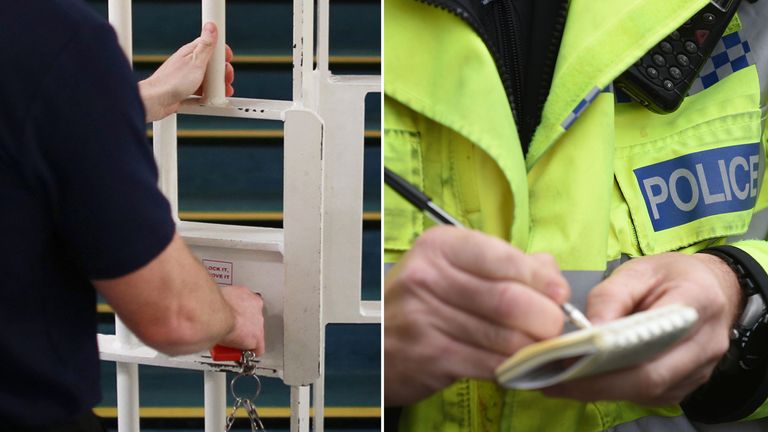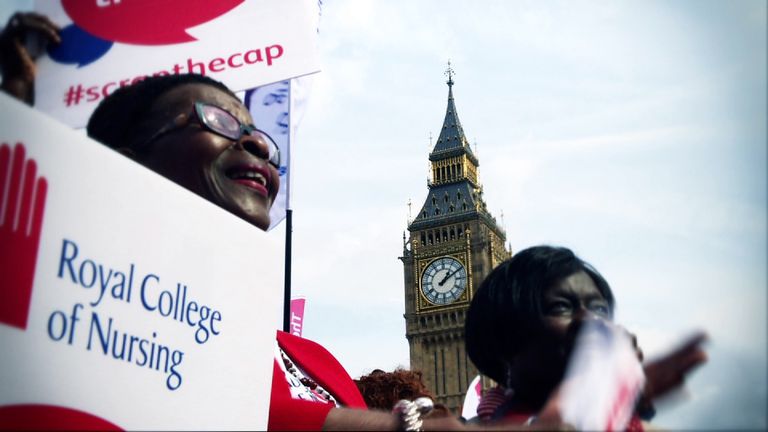Labour to demand pay cap lifted for NHS staff
Number 10 is ditching the 1% cap for police and prison guards - signalling it is ready to end the policy across the public sector.
Wednesday 13 September 2017 10:37, UK
Labour will challenge the Government on public sector pay on Wednesday, after ministers confirmed police and prison officers will no longer be subject to the 1% cap on pay rises.
On Tuesday, Downing Street revealed they had accepted the recommendations of pay review bodies for prison officers to get an average 1.7% pay rise and police officers to receive a 2% increase for 2017/18.
Number 10 also said ministers are ready to show "flexibility" over public sector pay for 2018/19.
Asked whether the introduction of flexibility in pay settlements meant the cap was over, Theresa May's official spokesman said: "The answer is yes."
The move came amid , which has been in place since 2013.
Labour is set to continue to challenge the Government on the issue on Wednesday, claiming NHS staff should also see the cap lifted immediately.
In an opposition day debate, the party will call for nurses and doctors to be given a "fair pay rise", although any House of Commons vote will be non-binding on ministers.
Jeremy Corbyn has sidestepped questions over whether he would back illegal strikes over public sector pay.
Amid their dismay at the Government's offer - announced on the same day the inflation rate was revealed to have reached 2.9% - union leaders demanded a 5% pay increase for all public sector workers and threatened industrial action even if it breached the law.
Justice Secretary David Lidington said the Government had to "balance" pay rewards for public sector workers with "being fair to the taxpayers who have to fund this", but insisted "strikes are not the sensible way forward".
He told Sky News: "What you can't do is simply say you're going to borrow a few million or billion more from the next generation.
"If it's debt, it's going to have to be paid back one day. That means extra tax or spending cuts on the next generation of workers."
Mr Lidington also claimed the public would react with "derision" after Unite general secretary Len McCluskey compared himself to Nelson Mandela and Mahatma Gandhi when raising the possibility of strike action in breach of the Trade Union Act, which came into force earlier this year.
Paul Johnson, director of the Institute for Fiscal Studies, told Sky News the Treasury would have to borrow or tax more to fund an increase of public sector pay across the board - with the money unlikely to come from existing departmental budgets already squeezed by austerity measures.





